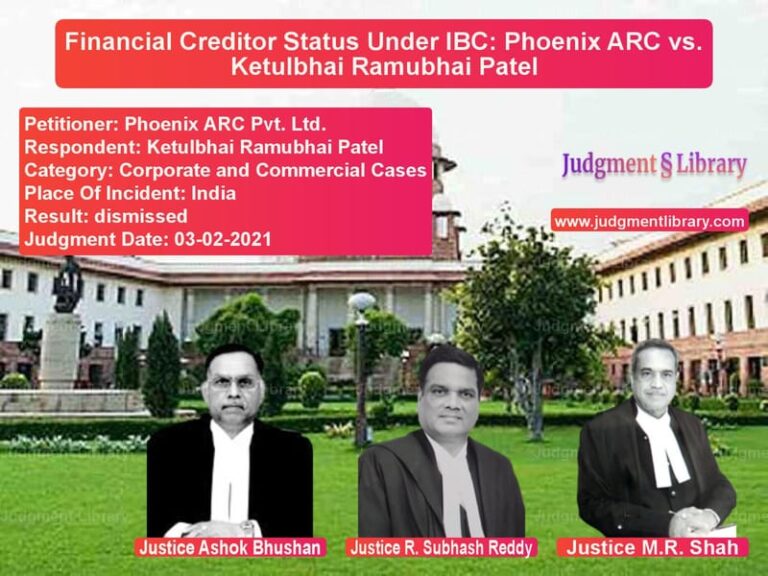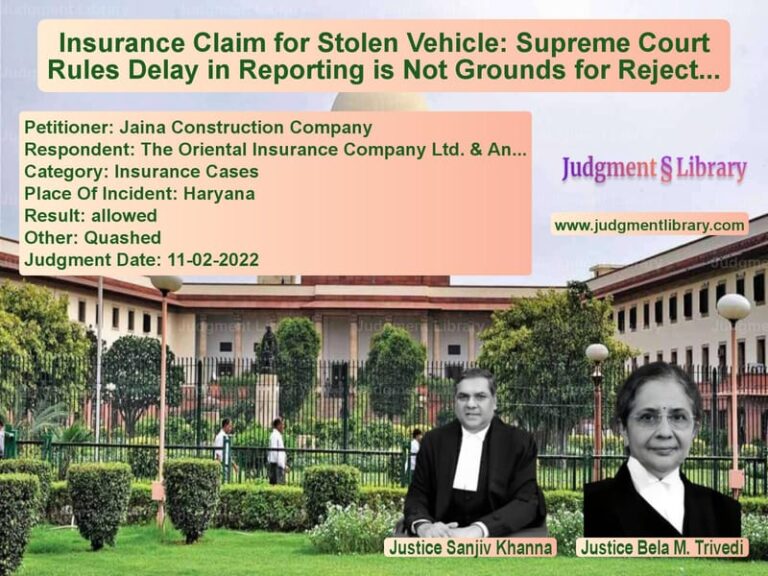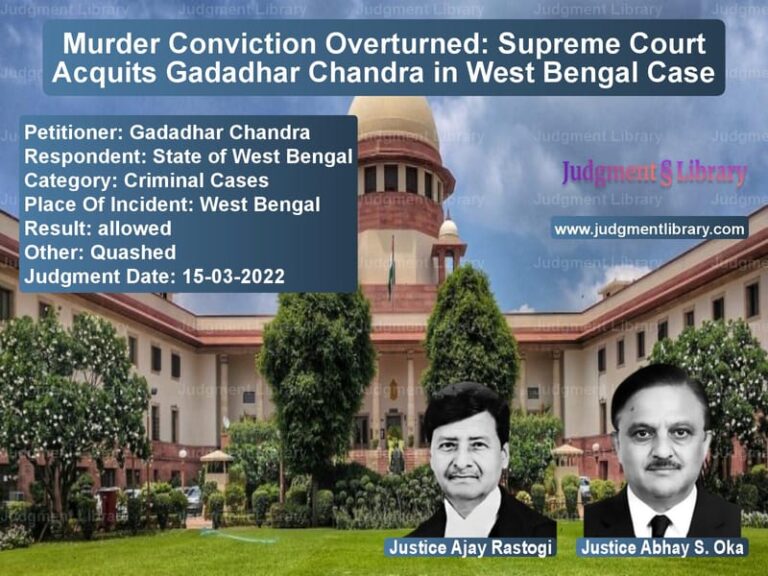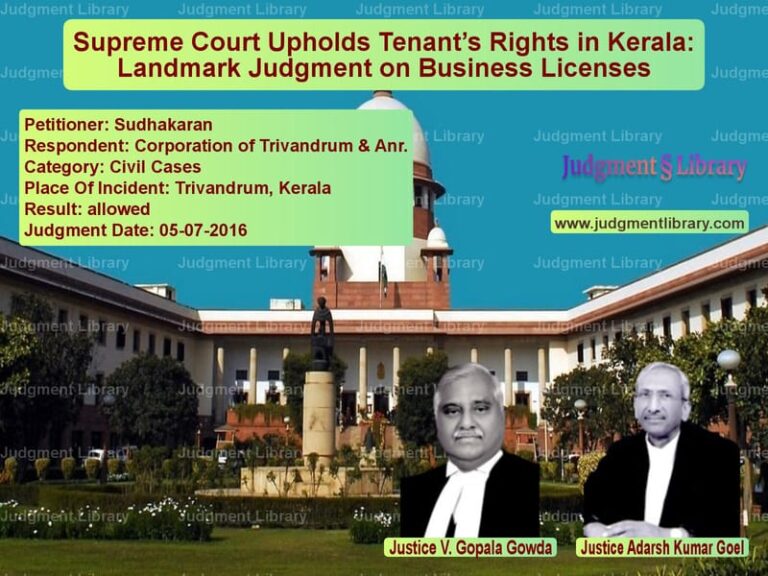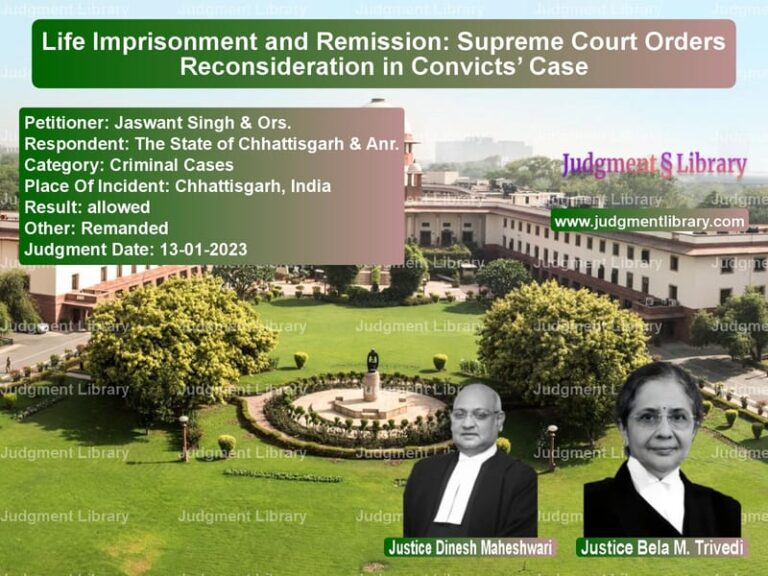Premature Retirement in the Indian Air Force: Supreme Court Ruling on Withdrawal Requests
The case of Union of India vs. Wg. Cdr. Subrata Das & Others deals with the critical issue of premature separation from service (PSS) in the Indian Air Force (IAF) and whether officers can unilaterally withdraw their applications once approved. The Supreme Court’s decision clarifies the legal position regarding voluntary exits from the armed forces and balances individual rights with military discipline and operational efficiency.
Background of the Case
The appellants, the Union of India and the Ministry of Defence, challenged the Armed Forces Tribunal’s decision that allowed Wing Commanders Subrata Das, P K Sen, and Group Captain Rajeev Moitra to withdraw their PSS requests after their approval. The case also included Wing Commander Rachit Bhatnagar, whose request for withdrawal was denied by the Tribunal.
Each officer had applied for premature separation under the IAF’s Human Resource Policy of August 2011, citing various personal reasons, such as lack of career progression, better employment prospects, and compassionate grounds. Their requests were approved, and some had already enrolled in pre-release courses to prepare for their transition to civilian life.
However, before their official release dates, they attempted to withdraw their requests, citing changed circumstances. The IAF denied their withdrawal applications, arguing that such decisions must align with the needs of the service. The officers approached the Tribunal, which ruled in favor of three officers and against one.
Petitioner’s Arguments (Union of India)
- Military service is fundamentally different from civilian employment; decisions regarding PSS must prioritize service requirements over personal preferences.
- The Human Resource Policy clearly states that officers who have undergone pre-release courses cannot withdraw their applications.
- Permitting unrestricted withdrawal of PSS requests would disrupt workforce planning and operational readiness.
- In certain cases, officers could exploit PSS policies to evade undesirable postings.
Respondent’s Arguments (Wg. Cdr. Subrata Das & Others)
- They had a fundamental right to withdraw their PSS requests before the effective separation date.
- The policy allowed for withdrawals in “extreme compassionate grounds,” which applied to their changed personal situations.
- There was no statutory restriction preventing them from continuing in service.
- The IAF’s rejection of their withdrawal requests was arbitrary and unfair.
Supreme Court’s Judgment
The Supreme Court, led by Justices Dr. Dhananjaya Y. Chandrachud and Hemant Gupta, ruled in favor of the Union of India, overturning the Tribunal’s decision for three officers and upholding it for one. The Court’s key findings were:
- Restricted Right to Withdraw: Unlike civilian employment, where resignations can often be revoked before acceptance, PSS in the IAF is governed by stringent rules. The right to withdraw is not absolute.
- Policy Compliance: The Court upheld the validity of the Human Resource Policy, which conditions withdrawal on “extreme compassionate grounds.” The officers failed to meet this standard.
- Operational Readiness: Allowing unrestricted withdrawals would disrupt the Air Force’s workforce management and undermine discipline.
- Pre-Release Course Clause: The Court agreed that officers who had attended pre-release courses should not be permitted to withdraw, as significant government resources were already invested in their transition.
Observations from the Judgment
The Court referenced previous rulings, including Union of India vs. Wing Commander T. Parthasarathy, emphasizing that withdrawal of resignation is not an inherent right in the military. It stated:
“An officer who is granted PSS takes away an exit vacancy that could have been availed by another officer. Permitting an absolute right to withdraw an approved PSS may lead to officers using PSS as a tool to escape a transfer to a sensitive appointment and to later withdraw the request.”
Regarding the officers who had rejoined service due to the Tribunal’s order, the Court exercised its discretionary power under Article 142 of the Constitution to allow them to continue until retirement, ensuring no disruption in their careers.
Conclusion
The Supreme Court’s verdict underscores that PSS in the armed forces is subject to specific policies that balance personal aspirations with service needs. It affirms that military discipline and operational efficiency take precedence over individual choices. This ruling serves as a critical precedent for future cases involving voluntary exits from the armed forces.
Petitioner Name: Union of India.Respondent Name: Wg. Cdr. Subrata Das & Others.Judgment By: Justice Dhananjaya Y. Chandrachud, Justice Hemant Gupta.Place Of Incident: India.Judgment Date: 29-01-2019.
Don’t miss out on the full details! Download the complete judgment in PDF format below and gain valuable insights instantly!
Download Judgment: Union of India vs Wg. Cdr. Subrata Das Supreme Court of India Judgment Dated 29-01-2019.pdf
Direct Downlaod Judgment: Direct downlaod this Judgment
See all petitions in Employment Disputes
See all petitions in Public Sector Employees
See all petitions in Termination Cases
See all petitions in Judgment by Dhananjaya Y Chandrachud
See all petitions in Judgment by Hemant Gupta
See all petitions in partially allowed
See all petitions in Modified
See all petitions in supreme court of India judgments January 2019
See all petitions in 2019 judgments
See all posts in Service Matters Category
See all allowed petitions in Service Matters Category
See all Dismissed petitions in Service Matters Category
See all partially allowed petitions in Service Matters Category


